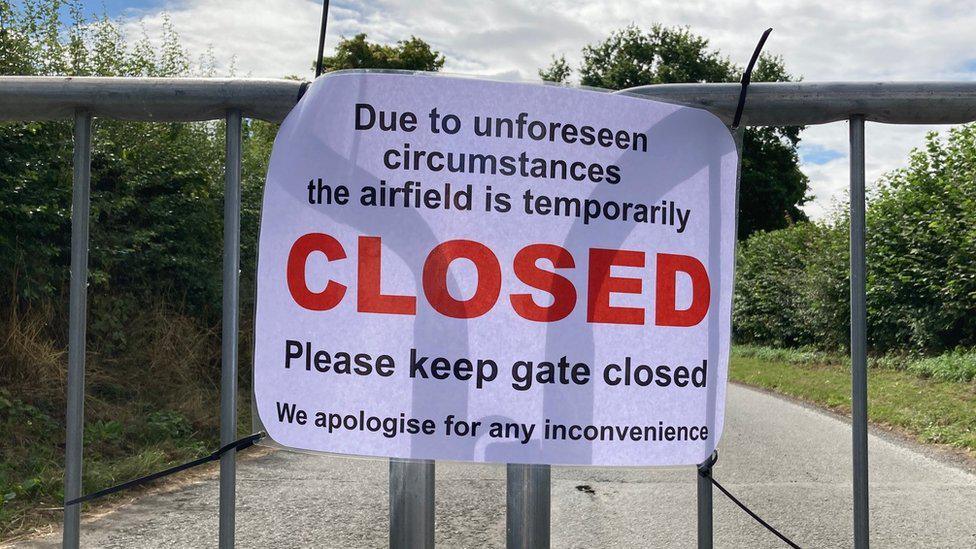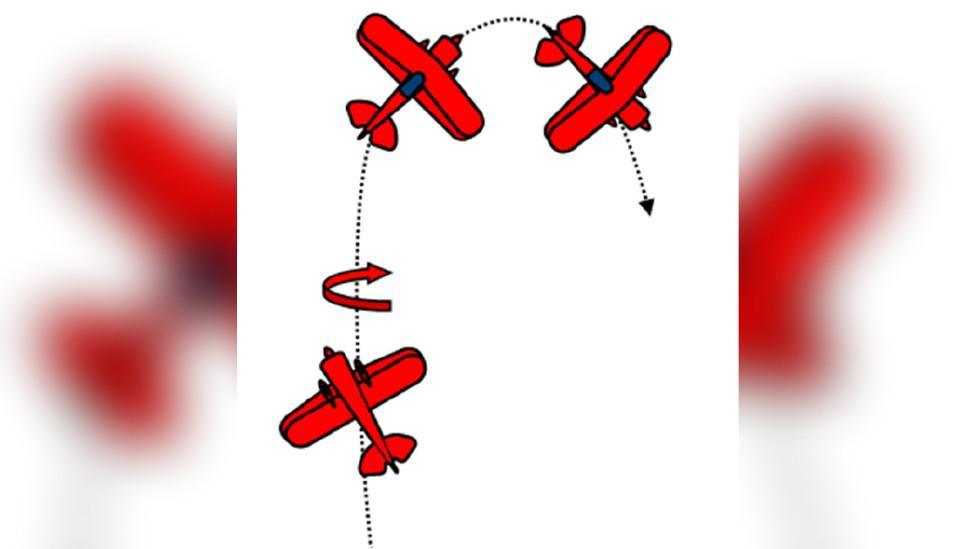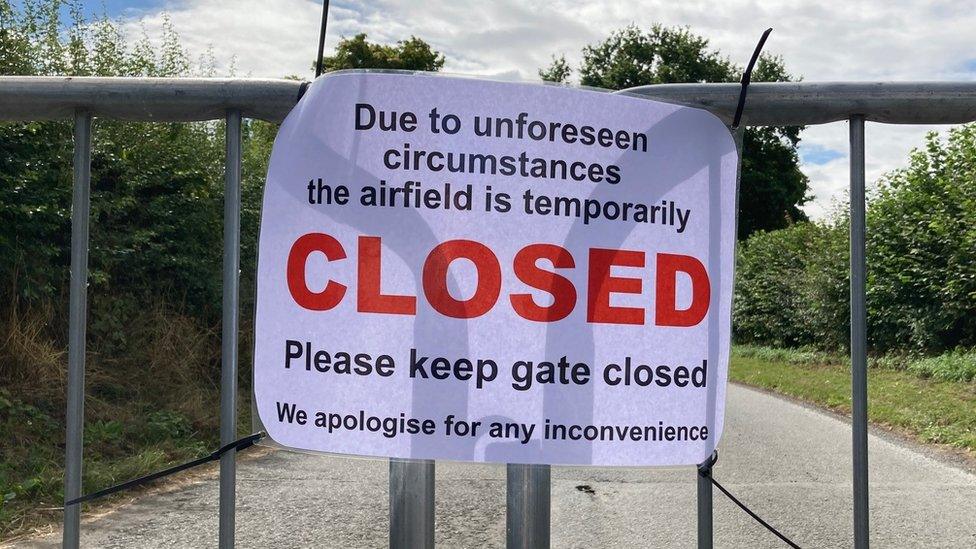Aerobatic pilot too low to avoid crash, report says

The pilot took off from Shobdon Airfield, near Leominster, on 26 August
At a glance
A pilot crashed when he practiced an aerobatic manoeuvre, an investigation finds
The 59-year-old died when his aircraft hit the ground near Shobdon Airfield
He lost control of the biplane at the top of a vertical climb
He regained control but was too low to avoid a crash.
- Published
An aerobatic pilot died when he lost control of his aircraft and was too low to prevent a crash, an investigation found.
The plane crashed four minutes after taking off from Shobdon Airfield, near Leominster, Herefordshire.
The experienced pilot, 59, had little margin for safety when he went into a manoeuvre, a report by the Air Accidents Investigation Branch (AAIB) concluded.
His biplane took off at about 09:00 BST on 26 August.

The 59-year-old lost control of the aircraft after he took it into a vertical climb, the report said
The pilot was the only person on the Pitts S-1S (G-BOXV) and a post-mortem examination found no serious medical conditions, the AAIB said.
No technical issues were found with the aircraft, a light aerobatic biplane used for competitive aerobatics. Visibility on the day was also good, the report said.
The crash happened after the pilot took the G-BOXV into a vertical climb at about 420ft (128m) above the ground and "an autorotative roll developed as the aircraft yawed at the top", the AAIB said.
The aircraft went into a spiral dive and, while he regained control, by the time he did he was too low to avoid the crash, they added.
He suffered fatal injuries when the G-BOXV hit the ground nine seconds after it reached the top of its climb.
The pilot wore a parachute but the AAIB said he did not have the time or height to abandon the aircraft.
Investigators said they could not work out why he could not stop the spiral dive.
But they added if he had begun the initial climb with more height and/or speed it would have increased his chances of recovering.
Low-level aerobatics come with "inherent risks when manoeuvres, planned or unplanned, do not proceed as expected", it concluded.
A fire crew from the airfield arrived within three minutes of the crash but the AAIB said in future the airfield decided to have its fire and rescue service on standby for any aerobatic practices.
Follow BBC West Midlands on Facebook, external, Twitter, external and Instagram, external. Send your story ideas to: newsonline.westmidlands@bbc.co.uk, external
Related topics
- Published26 August 2022
